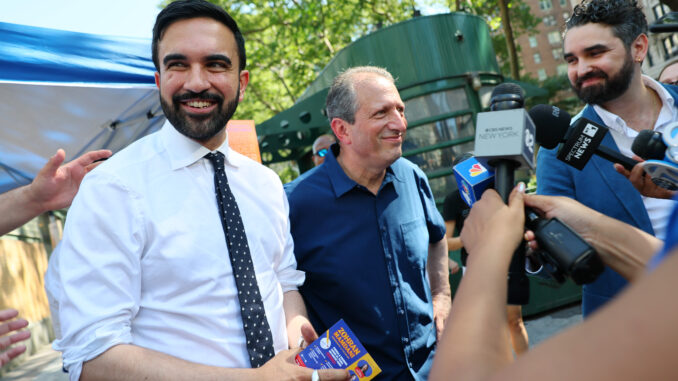
The city that never sleeps often sleeps on its own political seismic shifts, until the ground beneath its feet gives way. For decades, New York City’s Democratic primary for mayor has been a brutal, predictable dance of established power, corporate endorsements, and well-worn paths to City Hall. It was a contest of war chests and polling leads, a game played by titans who knew the rules. Then, in an unexpected turn that sent a tremor through the granite foundations of the five boroughs, State Assemblyman Zohran Mamdani took a commanding lead.
This wasn't just a win; it was a detonation of conventional wisdom. Mamdani, a relatively junior State Assemblyman, an unvarnished voice of the progressive left, was not supposed to be a frontrunner. He wasn't a borough president with years of patronage, nor a former city comptroller with deep ties to the financial elite. He hadn't amassed a multi-million-dollar war chest from real estate developers or Wall Street titans. His campaign was built on a different currency: the exasperation of a city struggling with soaring rents, a spiraling homelessness crisis, an inadequate public transit system, and a deep-seated longing for a genuine departure from decades of incrementalism.
The image that springs to mind is one of a meticulously constructed sandcastle, built layer by painstaking layer by the political establishment, only to be washed away by an unforeseen tide. The "commanding lead" wasn't a marginal victory, a photo finish where a few percentage points decided the outcome. It was a statement, a resounding rejection of the status quo delivered with an emphasis that left no room for misinterpretation. It suggested that the well-oiled machines of traditional politics, the carefully cultivated media narratives, and the reliance on big money had, for once, misread the city’s collective pulse.
How did this happen? It illustrates a confluence of factors, a perfect storm brewing beneath the surface of the city's glittering façade. Mamdani's campaign, rooted deeply in the Democratic Socialists of America (DSA) movement, spoke to a growing disenchantment. His platform — championing universal rent control, significant investments in public housing, aggressive climate change policies, and a radical reimagining of public safety — resonated with a segment of the electorate that felt increasingly alienated by the Democratic Party's centrist drift. It was a grassroots uprising, fueled by relentless door-knocking, digital organizing, and a volunteer base energized by a clear, uncompromising vision. It was David, not just challenging Goliath, but decisively felling him.
The victory, if it holds, illustrates a profound shift in the Democratic Party's ideological center of gravity, not just in New York, but potentially nationally. It signals that a younger, more idecologically defined, and often more diverse cohort of voters is not just showing up, but seizing the reins. They are less beholden to traditional political alliances, less impressed by resumes, and more responsive to bold solutions for systemic problems. The "unexpected turn" is less about Mamdani himself, and more about the millions of New Yorkers who, in his voice, found an echo of their own frustrations and aspirations.
A Mamdani mayoralty would be an experiment in radical change for a city often resistant to it, yet paradoxically, always reinventing itself. It would force a conversation about what "progress" truly means in a global city grappling with the stark realities of inequality. The commanding lead isn't merely a statistic; it's a crack in the political firmament, revealing the molten core of discontent and desire for transformation bubbling beneath. It's a reminder that even in the most predictable of arenas, the human element of hope, frustration, and the desire for something fundamentally different can, in an unexpected turn, redraw the maps of power. New York, ever the crucible of reinvention, has once again proven that its future, once predictable, now unfurls with compelling uncertainty.
